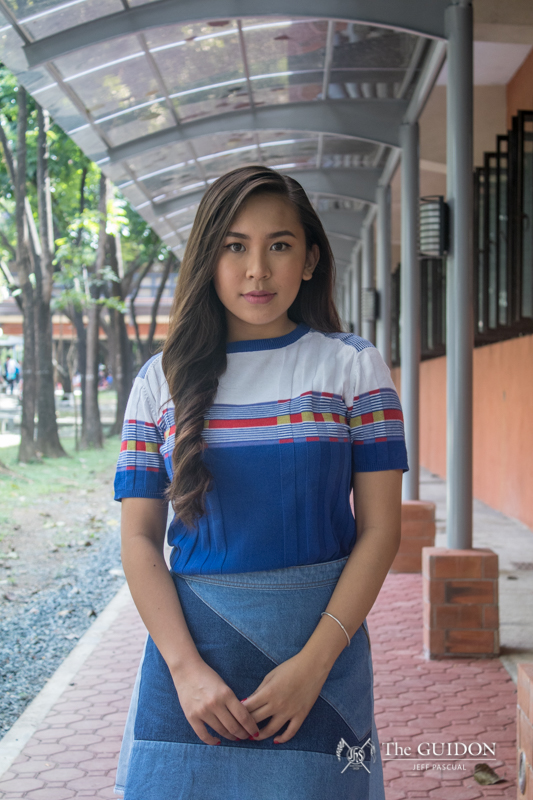Kolleen Yvonne Ricaro has a new story to tell with every character she plays. But the story of how—and why—she shifted from engineering to theater is one that she crafted all on her own.
The lights dim and an automated announcement fills the theater. Everything else is but a backlog to Kolleen Yvonne Ricaro as she stands backstage, thoughts of the injustices happening in our country fueling her angst. With the spotlight on her, she walks out, and you instantly see that the girl standing before you isn’t Yvonne anymore but Malaya, Anna’s lost daughter.
The phrase “starving artist” is a term which some use to describe a person with a fine arts degree. If you’re currently studying under the arts, it definitely wouldn’t be a surprise to hear professors and alumni alike say, “You’re all starving artists here.”
The notion that “there’s no money” in fine arts is widespread. What people fail to see, however, is just how people who had graduated under the fine arts are vital to the development of society.
Side act
Socio-politically aware and already burning with a passion for the performing arts, Ricaro was set on joining Ateneo ENterteynment para sa Tao, Bayan, LAnsangan, at DiyOs (ENTABLADO) when her first-ever RecWeek came along. “It’s [Yvonne’s] passion to serve and tell the stories of [the oppressed so that she can make] other people aware of how the lives of [the less fortunate] are,” says Chelsea Manzano, an ENTA almuna and a friend of Ricaro.
A seasoned actress, Ricaro has been performing since she was three years old. In elementary and high school, she honed her talents through speaking contests and clubs such as Thespian, the performing arts club of her high school.
Going into college, Ricaro then chose and got accepted into the Ateneo as an Electronics, Computer, and Communications Engineering (ECE) major. There was a bit of a problem, however, when Ricaro realized she didn’t do enough research on the course.
“Kaya ako nag-ECE [kasi] I thought electronics communications siya, so [there’s] math plus [communications]. Yung [communications] pala niya [telecommunications], hindi AB [Communications] (I chose ECE because I thought it was electronics communications, so there’s math plus communications. But the communications was actually telecommunications and not AB Communications),” she shares.
Despite this, Ricaro still pursued her studies under ECE, all the while being an active member of ENTA. By her third year in the Ateneo, Ricaro even began branching out into plays outside campus which were under Dulaang Unibersidad ng Pilipinas (DUP) and the Cultural Center of the Philippines (CCP). With extravagant hand gestures, sparkling eyes, and words that flowed out too fast that sometimes they all jumbled into a sea of indiscernible words, there’s one thing about Ricaro that you can be sure of: Her passion and love for theater knows no bounds.
Unrehearsed scenes
Ricaro’s first four years in ECE were a delicate balancing act. “I know how to compartmentalize,” she shares. “Hindi ko pwedeng isipin ‘yung theater habang nag-aaral ako at hindi ko pwedeng isipin yung acads habang nagthe-theater ako (I can’t think about theater while I’m studying, and I can’t think about my academics while I’m doing theater).”
Leading up to shows, Ricaro squeezed her life into such compartments: crunching numbers in class, memorizing lines between periods, and then attending late-night rehearsals for at least five hours. This is not to mention the homework she had to finish after rehearsals, or the times she had to travel to CCP or UP for practice.
Eventually, the hectic schedule demanded too much from her. “Rehearsals left Yvonne [Ricaro] limited time to rest and finish a problem set [that was] due the next day,” says Julze dela Victoria, who was Ricaro’s former roommate. “She would often cry because of stress and how she didn’t understand the whole problem set given. That, or she’d space out.” Karlo Erfe, also a student actor from Desaparesidos, knows first-hand how tough it is for a student to juggle his or her commitments alongside theater. As he puts it, “You handle [your other commitments] but you know your mind’s kind of somewhere else.”
Towards the end of her fourth year, Ricaro was certain that her heart and mind were set on theater, and not on her current course of study. “Hindi dumating sa akin na kailangan ko muna i-give up ‘yung theater (It never occurred to me that I had to give up theater),” she says. “I knew what I wanted, but it wasn’t ECE. Kaya lang ako nag-stay sa ECE for the sake of finishing it.”
By then, it was a full-on shift to Theater Arts that appealed to Ricaro, despite apprehensions about how others would react. But there’s a sterner glint in her eyes and an intensity to her tone when she recalls how she made up her mind. “Sobrang scary niya for me, pero at the end of the day, sinong pipili ng path mo? (It was scary for me, but at the end of the day, who chooses your path?)” she asks. “Ikaw (You)”
Audience impact
After resolving to shift, Ricaro was surprised to receive support from her parents and her friends. “Ang dami kong friends na noong sinabi ko sa kanila, as in naiyak sila for me kasi alam nila na ito ‘yung gusto ko (I had a lot of friends who cried when I told them about it, because they knew that this was what I wanted),” she says.
Dela Victoria, for one, remembers when Ricaro announced her decision. “She had this giddiness to start the shifting process,” she muses. “It seemed like a huge weight was removed from her shoulders.”
Ricaro’s move to Theater Arts, however, had its critics as well. “Kasi may iba rin na ‘Ah, sayang naman ‘yung ECE mo (There were also others who said, ‘Ah, what a waste of your ECE studies),” Ricaro says. For her, these sentiments point to a deeply rooted prejudice against the arts, one that restricts profit and practicality to select professions.
“Sa older generation, ‘yung in-demand courses [were] accountancy, law, [and others]. Sabi nga ni Missy [Maramara], there is a prejudice against the artist kasi hindi nila makita na (because they can’t see how) theater is also a discipline,” Ricaro adds. “[Just] like how science, math, [and] engineering courses are disciplines themselves.”
Now on her fifth year of college, Ricaro is currently learning just how much of a discipline theater is. “Hindi ako artist kung wala akong backbone, and ‘yun ‘yung academics to articulate your technique,” she says. “As in ‘yung first three months ko sa Theater [Arts], mas marami pa akong natutunan kaysa sa three years ko sa theater scene (I’ve learned more things in my three months under Theater Arts as compared to my three years in the theater scene.)”
When the curtains open, Ricaro transforms accordingly. On some occasions, she even lets the character into her offstage persona: “Minsan nag-iiba siya (Sometimes, she changes) for the length of the production,” remarks Manzano. Ricaro has been known to dream about her lines, run through them while showering, and even embody her characters à la method acting. But she wouldn’t force herself—or her art—into the roles already expected of her.
“If you know what you want right now at this moment it would be a shame for you to not choose what you’re really passionate about just because of other [people’s convictions],” says Ricaro. Clearly, it’s Ricaro’s relentless brand of courage that may benefit young artists who are also pursuing their unconventional passions.







